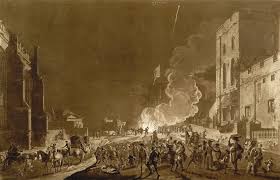The Significance of the 5th of November: Bonfire Night Explained

Introduction
The 5th of November, widely celebrated in the United Kingdom as Bonfire Night, carries deep historical significance related to the foiling of the Gunpowder Plot of 1605. This event marks a pivotal moment in British history when a group of conspirators, including Guy Fawkes, attempted to blow up the Houses of Parliament to assassinate King James I and restore Catholicism in England. The festivities that ensue from this historical event are not just a celebration, but they serve as an annual reminder of the values of democracy and the protection of the nation.
Historical Background
On the 5th of November 1605, authorities acting on a tip-off discovered Guy Fawkes guarding a stockpile of explosives beneath the Parliament building. Fawkes and his fellow conspirators were arrested, and their plot was thwarted. This led to the establishment of an annual public day of thanksgiving, which eventually evolved into the celebrations we witness today. It included lighting bonfires and burning effigies of Fawkes, representing the triumph of good over evil.
Modern Celebrations
Today, the 5th of November is marked across the country with various events, ranging from community bonfire nights to large firework displays. Local councils and organisations host festivities that attract families and individuals from all walks of life. Bonfire Night has become a significant social occasion, where people gather to enjoy fireworks, traditional food, and the warmth of bonfires. The atmosphere is often festive, but it also provides an opportunity for reflection on the historical events that led to these celebrations.
Safety and Regulations
With the growing popularity of fireworks, safety measures have become a crucial aspect of Bonfire Night celebrations. Local authorities emphasize the importance of adhering to safety regulations to ensure public safety. Fireworks safety campaigns are often launched in the lead-up to the event, advising revellers to use fireworks responsibly and consider attending organised displays for a safer experience.
Conclusion
The 5th of November remains an important date in British culture, symbolising the nation’s resilience and commitment to democracy. While the origins of Bonfire Night may stem from a tense moment in history, the night today is characterised by community spirit and celebration. It encourages a sense of unity as people come together to commemorate the past while looking forward to brighter, peaceful futures. As Bonfire Night approaches, it invites all to reflect on its historical significance and enjoy the vivid displays lighting up the night sky.









